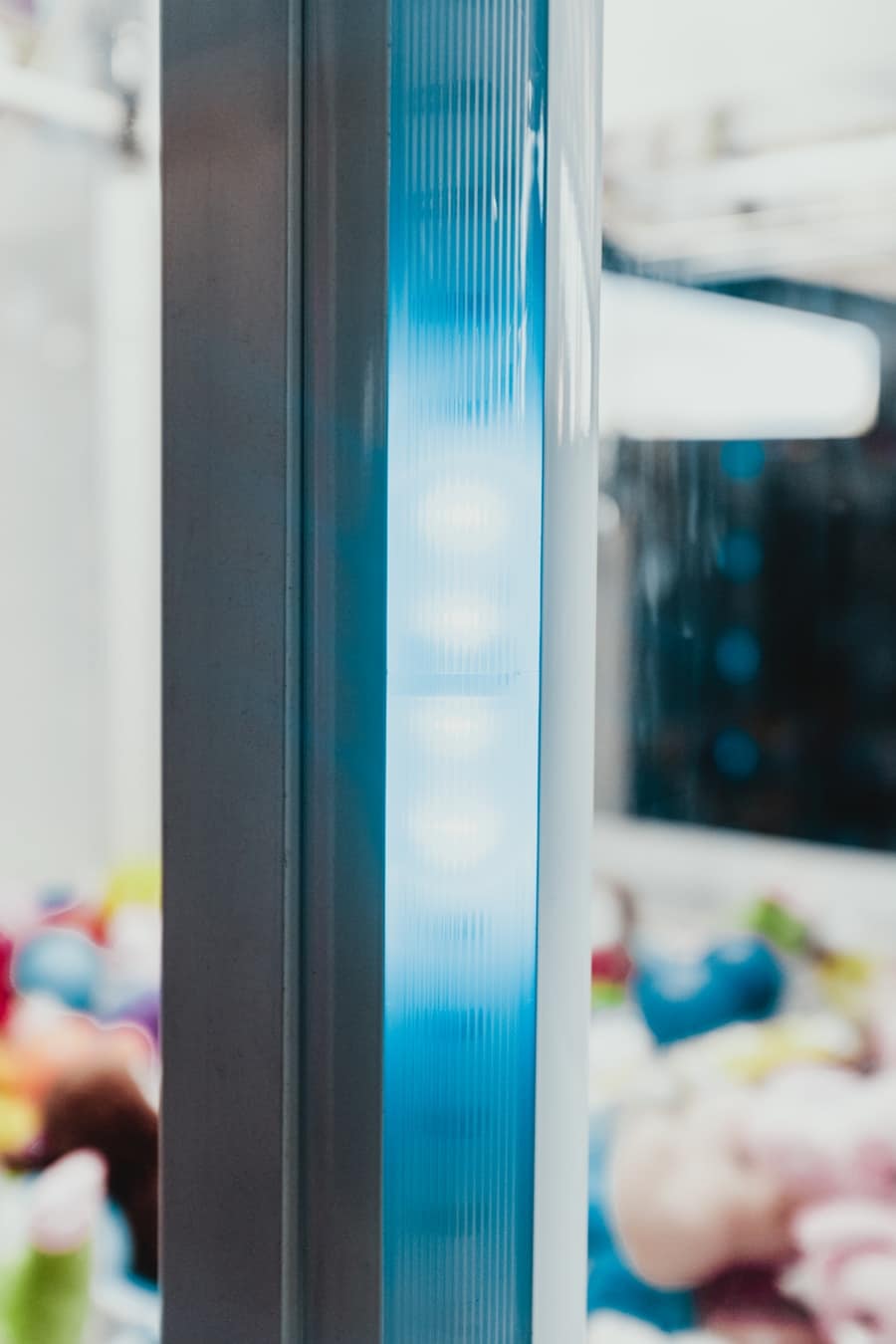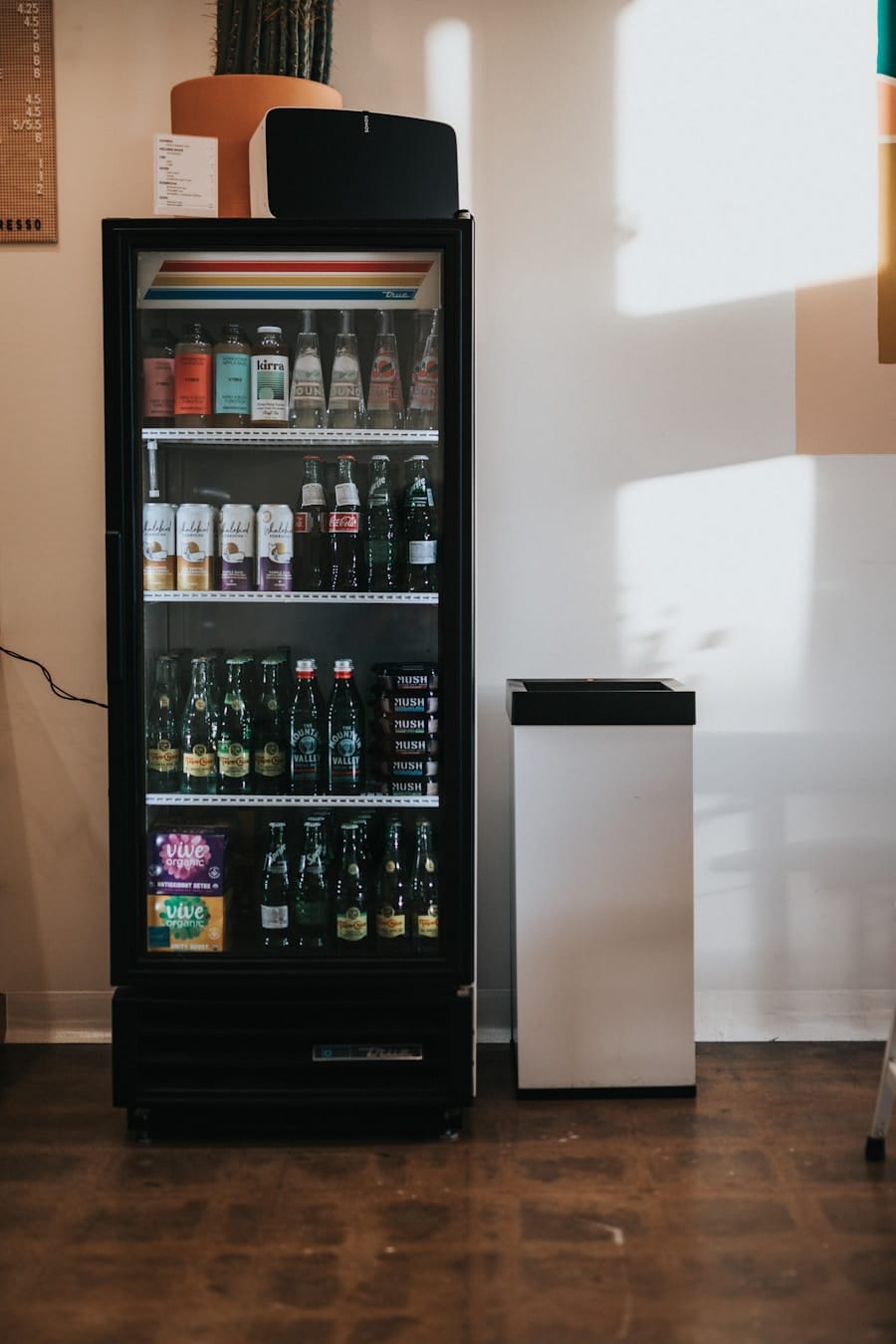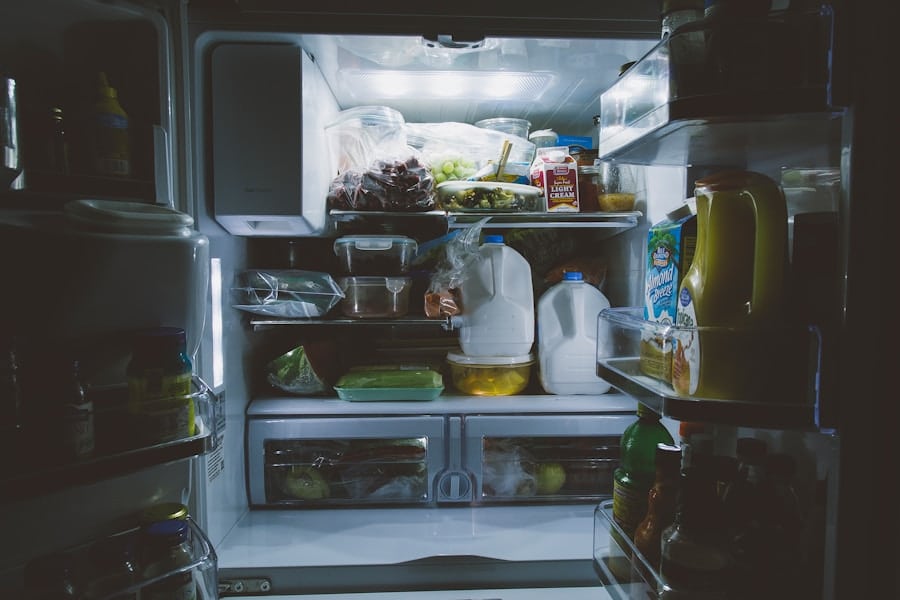The advent of the Internet of Things (IoT) has revolutionized various aspects of daily life, and one of the most intriguing applications of this technology is in the realm of smart home appliances. Among these, IoT-connected smart refrigerators stand out as a prime example of how technology can enhance our culinary experiences and streamline food management. These advanced appliances are equipped with sensors, cameras, and connectivity features that allow them to communicate with users and other devices, transforming the traditional refrigerator into a hub of information and convenience.
As households increasingly embrace smart technology, the role of these refrigerators is becoming more significant, offering not just storage but also a suite of functionalities that cater to modern lifestyles. Smart refrigerators are designed to provide users with real-time insights into their food inventory, helping to reduce waste and improve meal planning. By integrating with smartphones and other smart devices, these refrigerators can send notifications, track food items, and even suggest recipes based on available ingredients.
The combination of connectivity and intelligence allows for a more organized kitchen environment, where users can manage their food supplies efficiently. As we delve deeper into the various features and benefits of IoT-connected smart refrigerators, it becomes evident that they are not merely a luxury but a practical solution for contemporary living.
Key Takeaways
- IoT-connected smart refrigerators revolutionize the way we store and manage food at home.
- Monitoring and tracking food expiry dates becomes easier with IoT-connected smart refrigerators, reducing food waste.
- Inventory management and grocery list generation are simplified with the help of IoT-connected smart refrigerators.
- Temperature control and food preservation are enhanced through IoT technology, ensuring food safety and quality.
- Integration with recipe and meal planning apps allows for seamless meal preparation and planning.
Monitoring and Tracking Food Expiry Dates
Accurate Inventory Management
Equipped with internal cameras and sensors, these refrigerators can scan barcodes or recognize food items placed inside them. This capability allows them to maintain an up-to-date inventory of perishables, alerting users when items are nearing their expiration dates.
This proactive approach not only helps in minimizing food waste but also encourages healthier eating habits by ensuring that fresh ingredients are consumed in a timely manner.
Streamlined Meal Planning and Grocery Shopping
This feature is particularly beneficial for busy households where meal planning can often take a backseat to hectic schedules. By automating the tracking process, these refrigerators alleviate the mental burden associated with keeping tabs on food items. Users can focus on meal preparation rather than worrying about whether they have enough ingredients or if something has gone bad. Moreover, some smart refrigerators can integrate with grocery delivery services, allowing users to reorder items that are running low or about to expire.
Inventory Management and Grocery List Generation

Inventory management is another critical function of IoT-connected smart refrigerators that enhances user experience. These appliances can automatically catalog food items as they are added or removed, creating a comprehensive inventory list that is accessible via a smartphone app. This feature allows users to see what they have on hand at any given moment, reducing the likelihood of duplicate purchases and ensuring that nothing goes unnoticed in the back of the fridge.
For example, if a user takes out a jar of pickles, the refrigerator updates its inventory in real-time, providing an accurate reflection of what remains. In addition to managing inventory, smart refrigerators can generate grocery lists based on the items that are running low or have been consumed. This functionality streamlines the shopping process by allowing users to quickly compile a list without having to remember what they need or check their pantry manually.
By integrating inventory management with grocery list generation, IoT-connected smart refrigerators empower users to make informed purchasing decisions while saving time and effort.
Temperature Control and Food Preservation
Temperature control is paramount in preserving food quality and safety, and IoT-connected smart refrigerators excel in this area. These appliances are equipped with advanced temperature sensors that monitor internal conditions continuously. If the temperature deviates from the optimal range due to a power outage or malfunction, users receive immediate alerts on their smartphones.
This feature is crucial for preventing spoilage and ensuring that perishable items remain safe for consumption. For instance, if a refrigerator door is left ajar accidentally, the appliance can notify the user before significant temperature changes occur. Furthermore, many smart refrigerators offer customizable temperature zones for different types of food.
For example, certain compartments may be designed specifically for fruits and vegetables, while others may be optimized for dairy products or meats. This level of precision in temperature control not only extends the shelf life of food but also maintains its nutritional value and flavor. By leveraging IoT technology for temperature management, these refrigerators provide an enhanced level of food preservation that traditional models simply cannot match.
Integration with Recipe and Meal Planning Apps
The integration of IoT-connected smart refrigerators with recipe and meal planning applications represents a significant advancement in culinary convenience. Many smart refrigerators come equipped with touchscreens that allow users to browse recipes directly from the appliance itself. By linking their inventory data with recipe databases, these refrigerators can suggest meals based on the ingredients available inside them.
For example, if a user has chicken breasts, bell peppers, and broccoli on hand, the refrigerator might recommend a stir-fry recipe that utilizes those items. Additionally, meal planning apps can sync with smart refrigerators to help users organize their weekly meals more effectively. Users can plan out their dinners for the week based on what they have in stock, reducing food waste and ensuring that meals are balanced and nutritious.
This integration not only simplifies meal preparation but also encourages creativity in cooking by introducing users to new recipes they may not have considered otherwise. The ability to seamlessly connect inventory management with meal planning enhances the overall cooking experience and promotes healthier eating habits.
Alerts and Notifications for Food Consumption

Personalized Reminders for Optimal Food Management
These smart refrigerators can send reminders about various aspects of food consumption, from expiry dates to suggested meal ideas based on current inventory levels. For instance, if a user has leftover ingredients from a previous meal that need to be used up soon, the refrigerator can send a notification suggesting recipes that incorporate those ingredients.
Customizable Alert Settings for a Tailored Experience
Moreover, some smart refrigerators offer customizable alert settings that allow users to tailor notifications according to their preferences. For example, families with children might want reminders about healthy snack options or alerts when certain foods are running low.
Empowering Users to Make Informed Decisions
This level of personalization ensures that users receive relevant information that aligns with their dietary needs and lifestyle choices. By fostering a proactive approach to food consumption through alerts and notifications, IoT-connected smart refrigerators empower users to make informed decisions about their eating habits.
Data Analytics for Food Consumption Patterns
The data analytics capabilities of IoT-connected smart refrigerators provide valuable insights into food consumption patterns over time. By tracking what items are frequently used or wasted, these appliances can generate reports that help users understand their eating habits better. For instance, if a family consistently finds themselves throwing away expired produce, they may realize they need to adjust their purchasing habits or meal planning strategies accordingly.
This data-driven approach enables users to make informed decisions about their grocery shopping and meal preparation. Additionally, some smart refrigerators can analyze consumption trends based on seasonal changes or family preferences. For example, during summer months when fresh fruits are abundant, users might notice an increase in fruit purchases and consumption.
Conversely, during winter months, they may lean towards heartier meals that require different ingredients. By providing insights into these trends, IoT-connected smart refrigerators help users adapt their shopping habits to align with their lifestyle changes throughout the year.
Environmental Impact and Future Potential
The environmental impact of IoT-connected smart refrigerators is an increasingly important consideration as society becomes more aware of sustainability issues. By reducing food waste through better tracking and management features, these appliances contribute positively to environmental conservation efforts. According to the Food and Agriculture Organization (FAO), approximately one-third of all food produced globally is wasted each year, which has significant implications for resource use and greenhouse gas emissions.
Smart refrigerators play a pivotal role in addressing this issue by promoting efficient consumption practices. Looking ahead, the future potential of IoT-connected smart refrigerators is vast as technology continues to evolve. Innovations such as artificial intelligence (AI) could further enhance these appliances’ capabilities by enabling them to learn user preferences over time and make even more personalized recommendations for meal planning and grocery shopping.
Additionally, advancements in energy efficiency could lead to smarter energy management systems within these refrigerators, reducing their carbon footprint even further. As consumers increasingly prioritize sustainability in their purchasing decisions, IoT-connected smart refrigerators will likely become essential tools for environmentally conscious households seeking to minimize waste while maximizing convenience in their kitchens.
A related article to “How IoT-Connected Smart Refrigerators Are Reducing Food Waste” is a review of the game-changing keyword research tool, RankAtom. This tool can help businesses optimize their online presence and reach their target audience more effectively. To learn more about how RankAtom can benefit your business, check out this article.
FAQs
What is a smart refrigerator?
A smart refrigerator is a refrigerator that is connected to the internet and equipped with sensors and technology that allow it to perform various functions such as monitoring food inventory, suggesting recipes based on available ingredients, and providing real-time information on energy usage.
How do IoT-connected smart refrigerators reduce food waste?
IoT-connected smart refrigerators reduce food waste by helping users keep track of their food inventory, monitoring expiration dates, and sending alerts when items are about to expire. They can also suggest recipes based on the ingredients available, helping users make use of items before they spoil.
What are the benefits of using IoT-connected smart refrigerators?
The benefits of using IoT-connected smart refrigerators include reducing food waste, saving money by minimizing the need to throw away spoiled food, and promoting more efficient and sustainable food consumption habits. Additionally, these refrigerators can provide insights into energy usage and help users make more informed decisions about their food storage and consumption.
How do IoT-connected smart refrigerators work?
IoT-connected smart refrigerators work by using sensors to monitor food inventory, temperature, and expiration dates. They are connected to the internet, allowing users to access real-time information about their refrigerator’s contents and receive alerts and suggestions through a mobile app or other connected devices.
Are IoT-connected smart refrigerators expensive?
IoT-connected smart refrigerators can be more expensive than traditional refrigerators due to the added technology and connectivity features. However, the potential savings from reducing food waste and the convenience of the additional features may outweigh the initial cost for some users.

